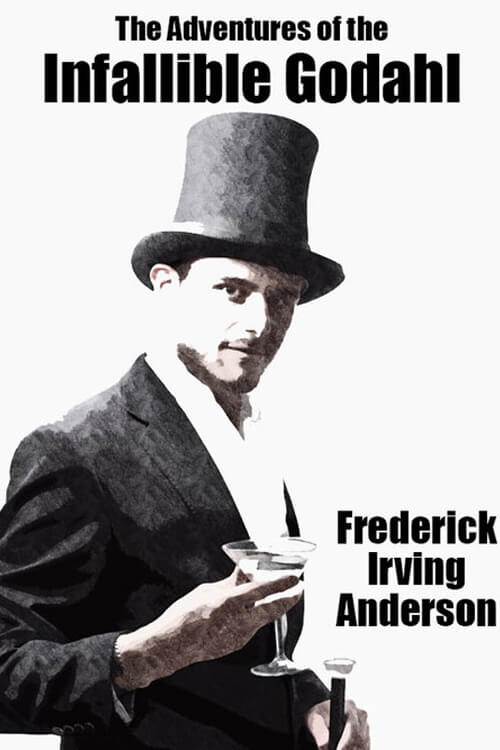
The Adventures of the Infallible Godahl
Oliver Armiston never was much of a sportsman with a rod or gun—though he could do fancy work with a pistol in a shooting gallery. He had, however, one game from which he derived the utmost satisfaction. Whenever he went traveling, which was often, he invariably caught his trains by the tip of the tail, so to speak, and hung on till he could climb aboard. In other words, he believed in close connections. He had a theory that more valuable dollars-and-cents time and good animal heat are wasted warming seats in stations waiting for trains than by missing them. The sum of joy to his methodical mind was to halt the slamming gates at the last fraction of the last second with majestic upraised hand and to stroll aboard his parlor car with studied deliberation, while the train crew were gnashing their teeth in rage and swearing to get even with the gateman for letting him through. Yet Mr. Armiston never missed a train. A good many of them tried to miss him, but none ever succeeded. He reckoned time and distance so nicely that it seemed as if his trains had nothing else half so important as waiting until Mr. Oliver Armiston got aboard.
On this particular June day, he was due in New Haven at two. If he failed to get there at two o’clock he could very easily arrive at three. But an hour is sixty minutes, and a minute is sixty seconds; and, further, Mr. Armiston, having passed his word that he would be there at two o’clock, surely would be.
On this particular day, by the time Armiston finally got to the Grand Central the train looked like an odds-on favorite. In the first place, he was still in his bed at an hour when another and less experienced traveler would have been watching the clock in the station waiting room. In the second place, after kissing his wife in that absent-minded manner characteristic of true love, he became tangled in a Broadway traffic rush at the first corner. Scarcely was he extricated from this when he ran into a Socialist mass meeting at Union Square. It was due only to the wits of his chauffeur that the taxicab was extricated with very little damage to the surrounding human scenery. But our man of method did not fret. Instead, he buried himself in his book, a treatise on Cause and Effect, which at that moment was lulling him with this soothing sentiment:
“There is no such thing as an accident. The so-called accidents of everyday life are due to the preordained action of correlated causes, which is inevitable and over which man has no control.”
Read or download Book
Frederick Irving Anderson
Frederick Irving Anderson (1877-1947) was an American journalist and short story writer, born in Illinois.
Biography.
He was a prolific contributor to The Saturday Evening Post and other magazines. Anderson began publishing fiction around 1910, before World War I and was still at it up to the time of his death in 1947.
He married Helen de Zouche and retired after she died in 1937 to Vermont. There are four book collections of his short stories. But much of his work has never been published in book form. His character the Infallible Godahl is a self-proclaimed master criminal whose Watson is the writer Oliver Armiston. Both Godahl and the female jewel thief Sophie Lang manage to outwit the New York detective Deputy Parr.
Frederick Irving Anderson has shown perhaps the greatest mastery of the American short detective story . . . in ingenuity, command of plot, and the carefully integrated backgrounds of his work. So wrote the great mystery critic and historian, Howard Haycraft, in 1941. Ellery Queen added that his style is rich in detail and double-rich in expression.
Many of his stories take place in New York City during the 1920s and the 1930s, and they feature the manhunter Deputy Parr and the; extinct author, Oliver Armiston, who stopped writing ingenious crime stories because criminals were copying his gimmicks.






